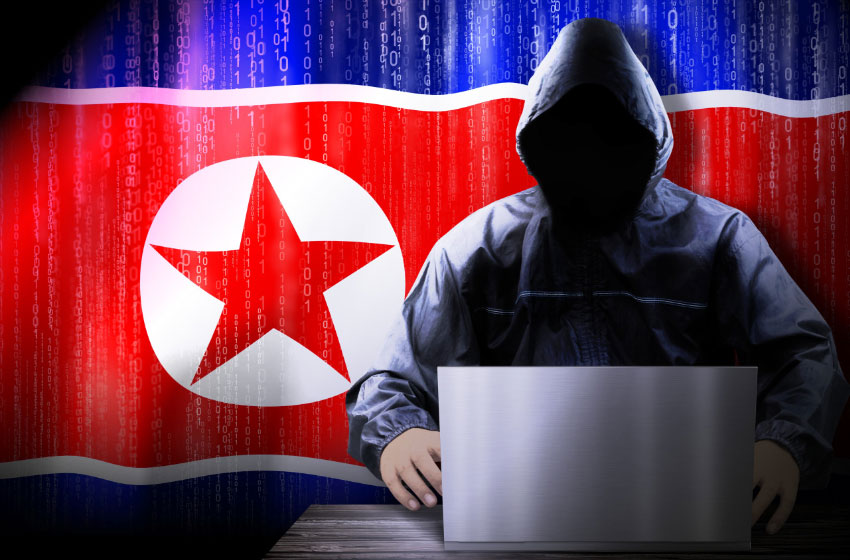Digital Theft for Nuclear Gain – North Korea’s Crypto Heists Funding its Nuclear Ambitions

In the shadowy corners of international finance and global security, North Korea has found an unconventional means of sustaining its nuclear ambitions- cryptocurrency heists. This burgeoning digital frontier has become a battleground where Pyongyang’s operatives engage in sophisticated cyber warfare, targeting the vast, often unregulated reserves of digital currencies. This strategy not only highlights the regime’s adaptability to technology but also underscores a growing threat to global financial stability.
The Nexus of Cryptocurrency and Geopolitics
Cryptocurrencies, by design, offer a level of anonymity and are subject to minimal regulation, presenting an attractive loophole for entities facing heavy international sanctions. North Korea, isolated and heavily sanctioned due to its nuclear programme, has turned to cryptocurrency theft as a significant revenue stream. These digital heists provide the regime with the necessary funds to circumvent economic blockades and finance their nuclear and ballistic missile programs.
Scale and Scope of the Heists
Reports from the United Nations and various cybersecurity agencies indicate that North Korean hackers, linked to the Reconnaissance General Bureau, North Korea’s top military intelligence agency, have stolen over $2 billion in cryptocurrencies in recent years. The tactics employed are diverse, ranging from phishing scams to malware attacks, exploiting the security vulnerabilities of crypto exchanges and individual wallets.
One notable method involves the use of sophisticated malware that infiltrates computer networks, allowing the hackers to initiate unauthorized transfers of cryptocurrency. Another strategy is spear-phishing, where specific individuals are targeted with deceptive communications, tricking them into revealing their private encryption keys or directly transferring funds to wallets controlled by hackers.
The Lazarus Group – A Cyber Warfare Behemoth
Central to North Korea’s cyber heists is the Lazarus Group, a notorious collective of cybercriminals believed to be operated by the North Korean government. This group has been implicated in several high-profile attacks, including the infamous WannaCry ransomware attack in 2017, which affected thousands of computers across 150 countries, causing billions of dollars in damages.
The Lazarus Group’s activities extend beyond simple financial gain. They also gather intelligence that could be beneficial for national security preparations and advancing nuclear capabilities. By targeting financial institutions, cryptocurrency exchanges, and energy providers, they collect critical information and test the capabilities and responsiveness of potential adversaries.
International Responses and Challenges
The international community has struggled to respond effectively to North Korea’s forays into digital theft. The decentralized and often unregulated nature of the cryptocurrency market makes it particularly challenging to track and safeguard against such thefts. While sanctions continue to be the primary tool used by the United Nations and individual countries to pressure North Korea, these measures have had limited impact on curbing cyber activities.
Moreover, efforts to enhance cybersecurity and protect digital assets have been inconsistent across the globe. Countries and private entities alike are urged to increase their cybersecurity measures, enforce stricter regulations on cryptocurrency transactions, and improve collaboration between international law enforcement agencies.
The Broader Implications for Cybersecurity
North Korea’s success in funding its nuclear programme through cryptocurrency theft sets a precedent for other rogue states and criminal organizations to follow. This elevates the issue from a mere financial concern to a matter of international security. The potential for cryptocurrencies to fund illegal activities can undermine the global financial system, highlighting the need for a coordinated international approach to both cryptocurrency regulation and cybersecurity.
Towards a Cooperative Future
Addressing the threat posed by North Korea’s digital heists requires a multifaceted approach. Firstly, enhancing the security protocols of cryptocurrency exchanges and wallets is crucial. This involves not only better technology but also educating users and administrators about the risks and signs of cyber intrusions.
Secondly, there is a pressing need for international legal frameworks to regulate cryptocurrencies more strictly. Such regulations would help in tracking and preventing the flow of funds to and from illicit activities. Lastly, global cooperation is essential in sharing intelligence, tracking cybercriminal activities, and enforcing sanctions effectively.
The merging of digital finance and international security presented by North Korea’s crypto heists is a stark reminder of the new age of warfare and crime. As the world becomes more interconnected digitally, the repercussions of such actions become globally significant, demanding an equally global response. The urgency for enhanced protective measures and international cooperation continues to grow as these threats evolve in complexity and scale.





